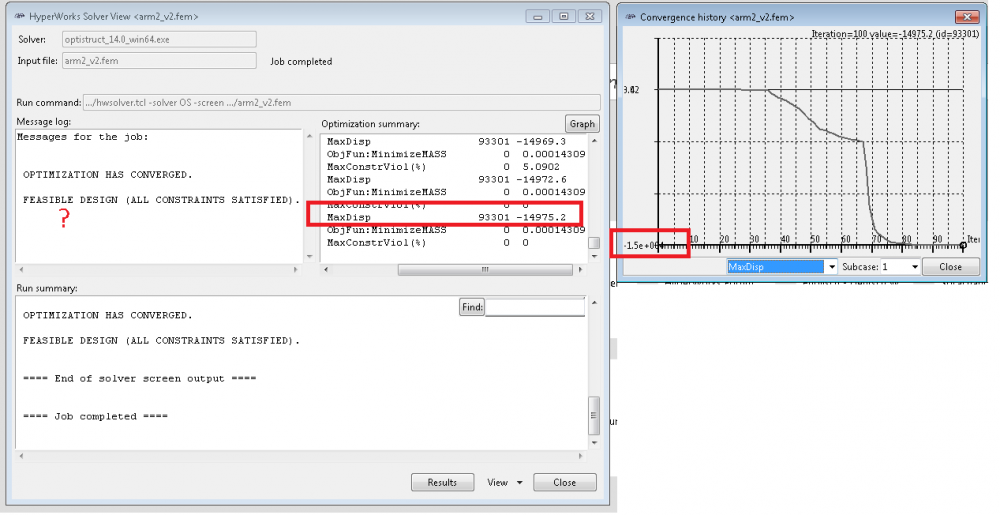Rahul,
thanks for the answer. I have increased the no of iterations to 150. Now it converged, but the result is still very bad.
The displacement is -1.5e4 in the convergence graph. I dont know whats wrong...
Could you please check my model? I attached it in my first post.
Thanks for your help,
wan
<?xml version="1.0" encoding="UTF-8"?>